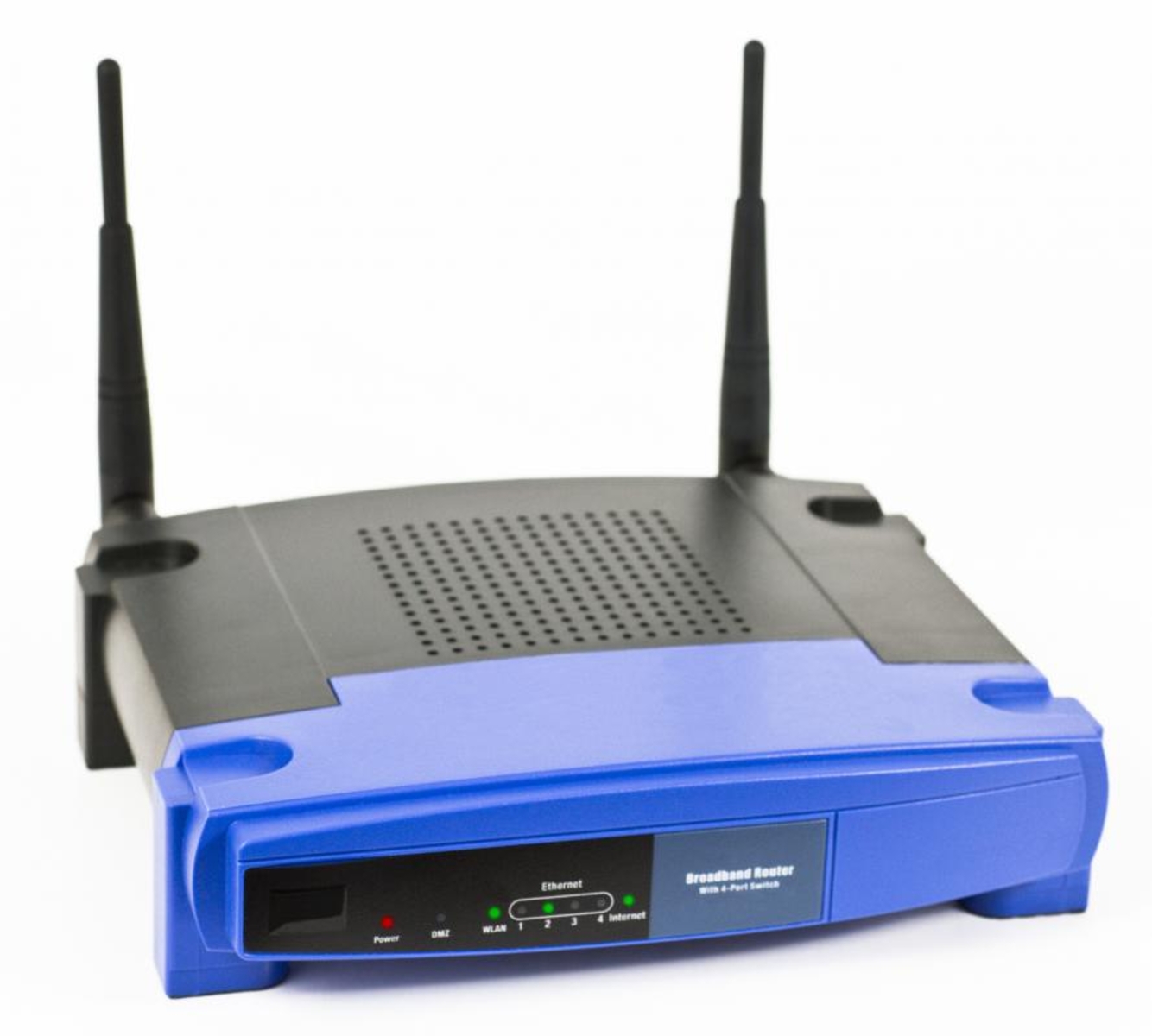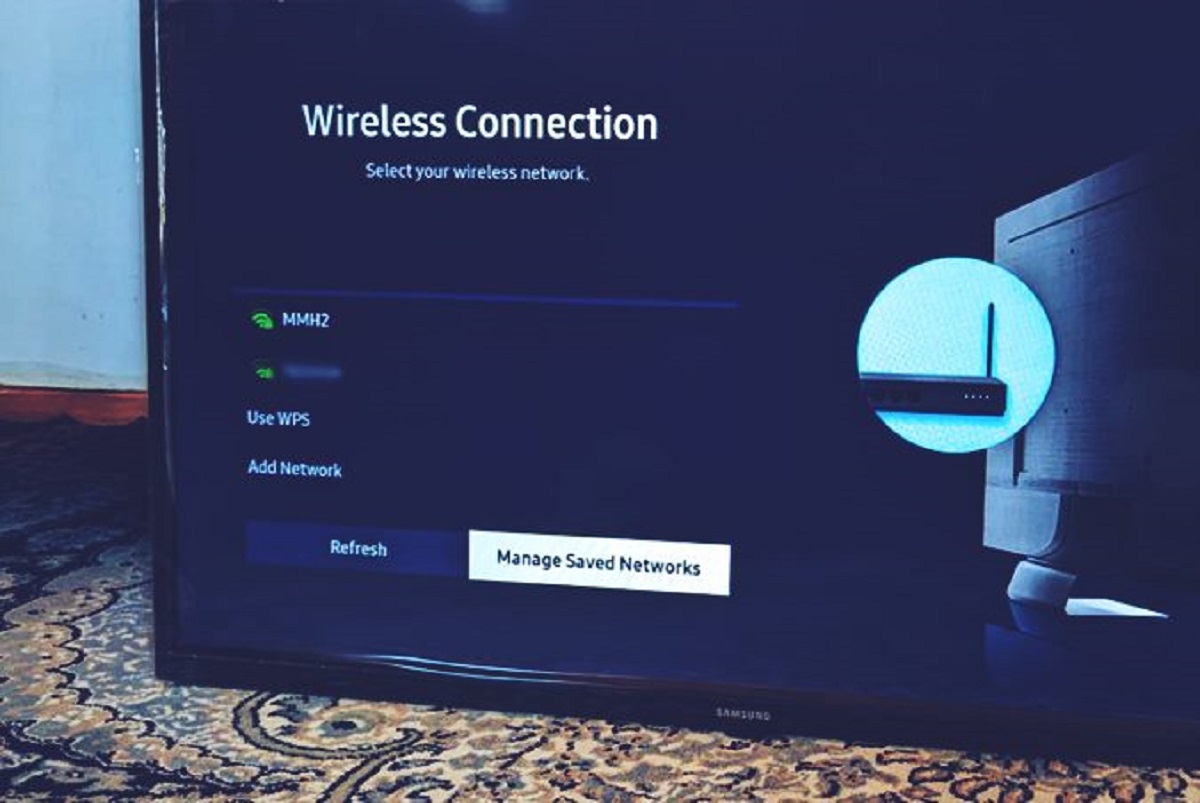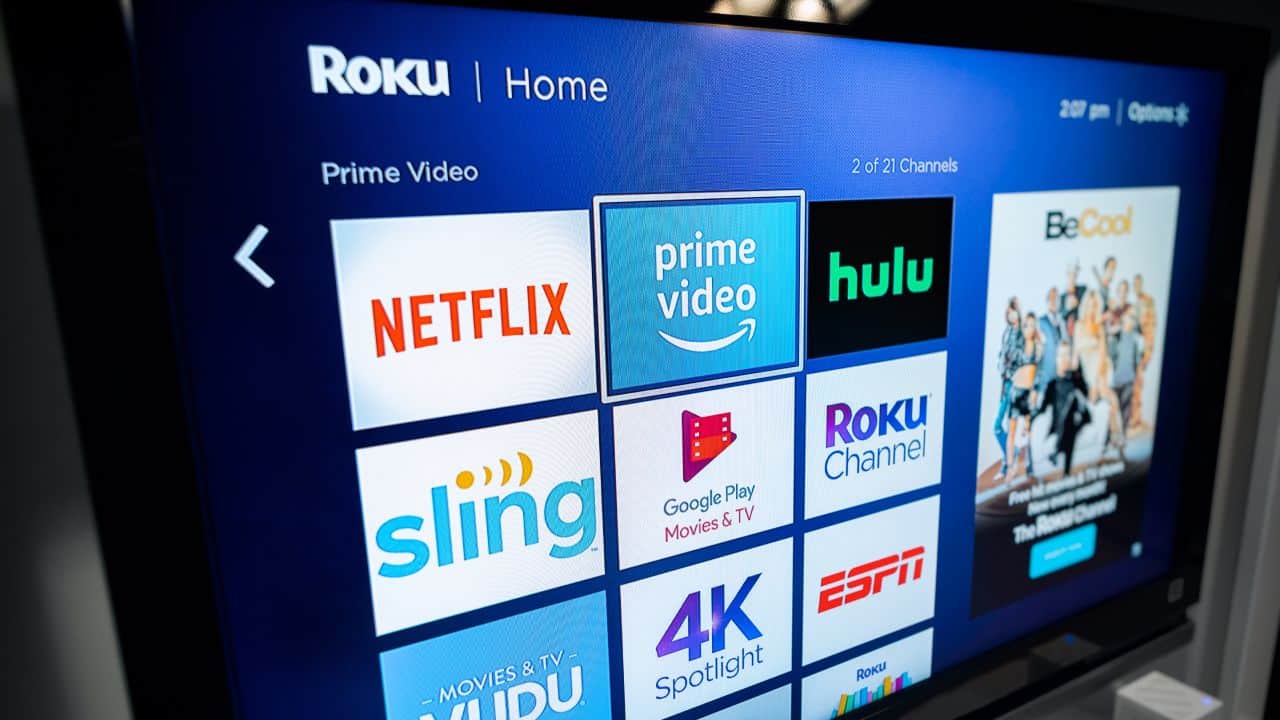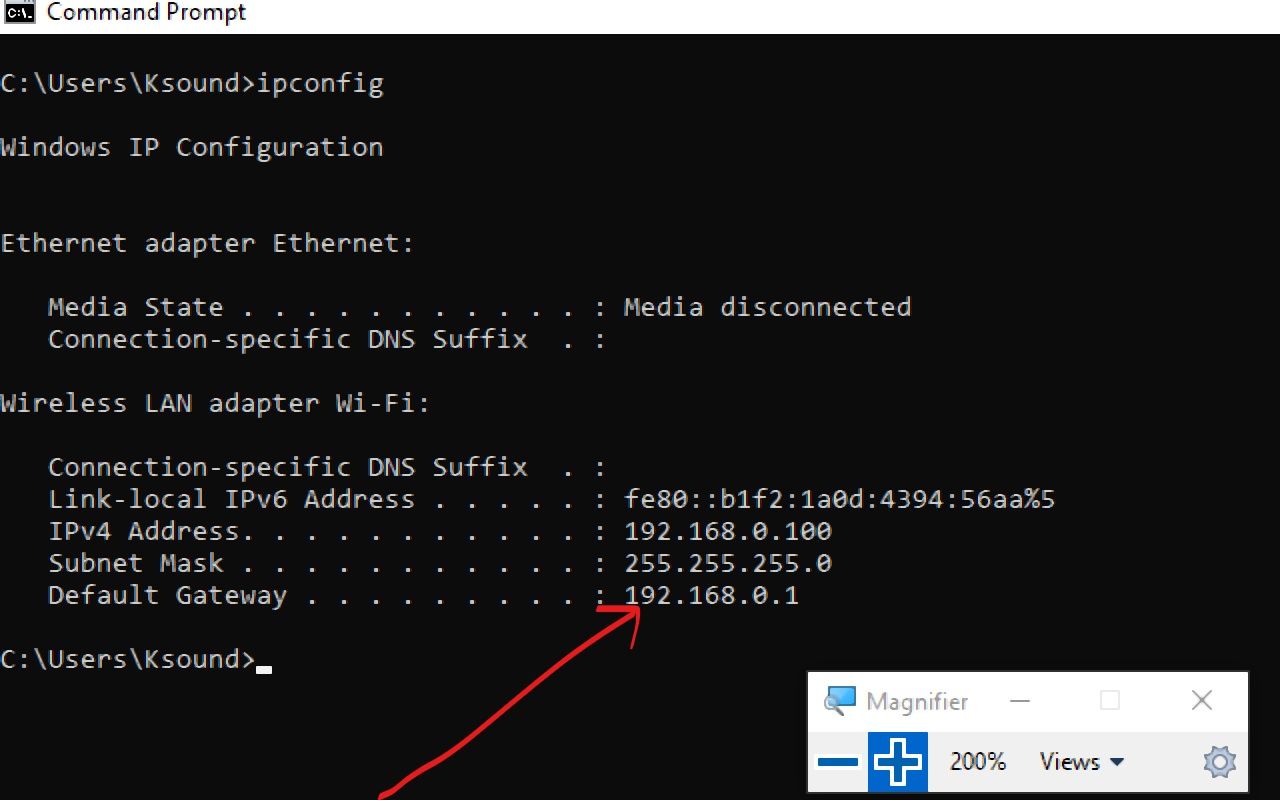Introduction
Your IP address is a unique numerical identifier that allows devices to communicate with each other on the internet. But have you ever wondered why your IP address may seem to reflect a different location than where you actually are? It can be quite frustrating and confusing when websites or apps incorrectly identify your IP address location.
IP geolocation is the process of determining the physical location of an IP address. It is an essential tool used by various service providers, websites, and applications to personalize content, improve user experience, and enhance security. However, there are several factors that can contribute to incorrect IP address geolocation, leading to discrepancies between your actual location and the location displayed by some platforms.
In this article, we will explore the reasons behind incorrect IP address location and provide tips on how to correct it. By understanding these factors, you can gain more insight into why your IP address may be showing the wrong location and take steps to ensure accurate geolocation in the future.
How Does IP Geolocation Work?
IP geolocation uses a combination of techniques to determine the location associated with an IP address. The process involves analyzing various data points and using sophisticated algorithms to provide an approximation of the physical location.
One of the primary methods used in IP geolocation is the utilization of geolocation databases. These databases store information about the geographic locations of IP addresses based on past observations and data from sources such as internet service providers (ISPs) and regional internet registries (RIRs). The databases map IP addresses to specific locations, enabling websites and applications to identify the approximate location of a user based on their IP address.
To determine the location, geolocation services typically rely on data such as the IP address’s subnet, domain name system (DNS) information, and routing tables. By analyzing this information, the geolocation service can estimate the location of the IP address with varying degrees of accuracy.
In addition to geolocation databases, other methods can enhance the accuracy of IP geolocation. For instance, some websites and applications use GPS data from mobile devices to pinpoint the geographic location of the user. This approach is particularly useful for mobile applications and can provide more precise location information.
It is important to note that IP geolocation is not always 100% accurate. Factors such as outdated databases, the use of proxy servers or virtual private networks (VPNs), shared IP addresses, ISP routing errors, and mobile network providers can all contribute to inaccuracies in IP address location. Furthermore, privacy concerns may also impact the granularity of information provided by geolocation services.
Overall, IP geolocation is a valuable tool that facilitates personalized online experiences and enhances security measures. However, understanding the limitations and factors that can affect its accuracy will help you better comprehend why your IP address location may not always align with your actual physical location.
Factors Affecting IP Address Geolocation
Although IP geolocation is a useful technique, it is influenced by various factors that can impact the accuracy of the location information associated with an IP address. Understanding these factors can shed light on why your IP address may be showing a location different from where you are actually located. Let’s explore some of the main factors affecting IP address geolocation:
1. Outdated IP Geolocation Databases: Geolocation databases are continuously updated, but they may not always have the most recent information. Changes in IP address assignments and the addition of new IP ranges can result in outdated data, leading to incorrect geolocation results.
2. Use of Proxy Servers or VPNs: Proxy servers and virtual private networks (VPNs) can mask your original IP address and route your internet traffic through servers in different locations. This can cause the geolocation service to detect the location of the proxy server or VPN server rather than your actual location.
3. Shared IP Addresses: In some cases, multiple users may share the same IP address. This can happen when internet service providers (ISPs) use a technique called network address translation (NAT) to conserve IP addresses. As a result, the geolocation service may assign the IP address location to a general area rather than a specific location.
4. Mobile Network Providers: Mobile network providers assign dynamic IP addresses to their users, and these addresses can change as you move between different cell towers. The geolocation service may have difficulty accurately pinpointing your location if it relies on static IP location data.
5. GPS Data Override: Some websites and applications have access to GPS data from mobile devices. If you have granted permission, they may prioritize GPS data over IP geolocation, resulting in a more accurate location determination.
6. ISP Routing Errors: Internet traffic routing can be complex, and sometimes errors occur in the routing tables of ISPs. These errors can cause your internet traffic to be routed through servers in different locations, leading to a mismatch between your actual location and the detected IP address location.
By considering these factors, you can better understand why your IP address location may not always align with your physical location. It is crucial to keep in mind that IP geolocation is an estimation and may not provide pinpoint accuracy in every instance.
Possible Reasons for Wrong IP Location
There are several reasons why your IP address may be showing the wrong location. Understanding these reasons can help you identify the cause and take appropriate steps to rectify the issue. Let’s explore some possible explanations for incorrect IP address location:
1. Outdated IP Geolocation Databases: As mentioned earlier, geolocation databases may not always have the most up-to-date information. If the database being used by a particular website or application is outdated, it can lead to inaccurate IP address geolocation results.
2. Use of Proxy Servers or VPNs: Proxy servers and VPNs can mask your IP address and route your internet traffic through servers in different locations. This can result in the geolocation service detecting the location of the server rather than your actual location.
3. Shared IP Addresses: When multiple users share the same IP address, the geolocation service may assign the location to a general area rather than a specific user’s location. This can lead to inaccuracies, especially in densely populated areas where many users are connected to the same IP address.
4. Mobile Network Providers: If you are using a mobile device, your location can be influenced by the network provider’s dynamic IP address allocation. As you move between different cell towers, your IP address may change, and the geolocation service may have difficulty accurately determining your location.
5. GPS Data Override: Some websites and applications have access to GPS data from your mobile device if you have granted permission. In such cases, they may prioritize GPS data over IP geolocation, resulting in location discrepancies.
6. ISP Routing Errors: Errors in the routing tables of internet service providers (ISPs) can cause your internet traffic to be routed through servers in different locations. This can lead to IP address location mismatches, particularly when there are routing errors.
It is important to remember that the accuracy of IP geolocation is not guaranteed, and these factors can contribute to incorrect IP address location. To ensure more accurate results, consider using multiple geolocation services or verifying your location through other means, such as GPS data from your device.
Outdated IP Geolocation Databases
One of the possible reasons why your IP address may be showing the wrong location is outdated IP geolocation databases. These databases store information about the geographical locations associated with specific IP addresses. However, as the internet constantly evolves, IP address assignments and allocations can change over time, resulting in outdated data in geolocation databases.
Geolocation databases rely on various sources, such as internet service providers (ISPs) and regional internet registries (RIRs), to gather information about the location of IP addresses. They map IP addresses to specific geographic locations, allowing websites and applications to determine the approximate location of their users. However, if a database is not regularly updated, it may not reflect the most recent IP address location assignments.
Outdated geolocation databases can lead to incorrect IP address location results. For example, if an IP address previously registered to a particular region is now assigned to a different location, the geolocation service may still associate it with the old location. This discrepancy can result in your IP address showing the wrong location when you access websites or use applications that rely on this database for geolocation data.
To address this issue, geolocation service providers strive to update their databases regularly. However, the frequency and accuracy of updates can vary. Some providers update their databases daily, while others may have longer update intervals. Additionally, smaller or less widely-used geolocation databases may not have access to the same level of up-to-date information as larger, more comprehensive databases.
If you find that your IP address consistently shows the wrong location, despite being within the expected range of IP address assignments for your location, it could be due to an outdated geolocation database. In such cases, it is recommended to reach out to the website or application’s support team and inform them of the issue. They may be able to update their geolocation database or investigate alternative methods of determining your location accurately.
It is worth noting that relying solely on IP geolocation for accurate location data is not always foolproof. To obtain the most precise results, combining multiple data sources such as GPS data from a mobile device or manually providing your location information may be necessary.
Use of Proxy Servers or VPNs
Another potential reason for your IP address showing the wrong location is the use of proxy servers or virtual private networks (VPNs). These technologies allow you to route your internet traffic through servers located in different regions or countries, effectively masking your original IP address and making it appear as if you are accessing the internet from a different location.
When you connect to a website or use an application while using a proxy server or VPN, the geolocation service may detect the location of the server you are connected to, rather than your actual physical location. This can result in the IP address location being inaccurately identified.
Proxy servers act as intermediaries between your device and the internet, forwarding your requests through their own servers. They can be used to bypass geographic restrictions on content or increase online privacy. Similarly, VPNs encrypt your internet traffic and route it through servers located in different regions, making it seem as if you are accessing the internet from that location.
While proxy servers and VPNs provide valuable benefits, they can also contribute to incorrect IP address geolocation. Geolocation services rely on the IP address of the connection request to determine the location, but if that IP address is associated with a proxy server or VPN, the detected location may not align with your actual physical location.
It’s important to note that not all proxy servers or VPNs will mask your IP address and change your geolocation. Some services offer dedicated IP addresses that maintain the correct location information. However, many services utilize shared IP addresses, where one IP address is used by multiple users. In such cases, the geolocation database may assign a general location to the shared IP, leading to potential inaccuracies in IP address location.
If you suspect that the use of a VPN or proxy server is causing your IP address to show the wrong location, you can try disconnecting from the service and accessing the website or application directly. This will help determine whether the proxy or VPN is the cause of the location discrepancy.
Overall, while proxy servers and VPNs provide privacy and enhanced online access, they can also affect the accuracy of IP geolocation. Being aware of the impact of these technologies can help you understand why your IP address may be displaying the wrong location in certain contexts.
Shared IP Addresses
Shared IP addresses are another factor that can contribute to your IP address showing the wrong location. In some cases, multiple users can share the same IP address, particularly when internet service providers (ISPs) use a technique called network address translation (NAT) to conserve IP addresses.
With shared IP addresses, the geolocation service may assign the IP address location to a general area rather than a specific location. This can result in your IP address showing a location different from where you are physically located. In densely populated areas or areas with a high concentration of internet users, there is a higher probability of encountering shared IP addresses.
The reason behind shared IP addresses lies in the limited availability of IPv4 addresses. As the demand for internet connectivity increases, the pool of available IP addresses shrinks. ISPs mitigate this issue by assigning a single IP address to multiple users within the same network using NAT technology. This method allows multiple devices to use a single IP address, sharing the available IP resources.
Shared IP addresses present a challenge for accurate IP geolocation. Since multiple users residing in different locations share the same IP address, the geolocation service cannot accurately pinpoint an individual user’s precise location. Instead, it approximates the general area associated with the shared IP address.
The accuracy of shared IP address geolocation depends on the granularity of available data and the reliability of the geolocation database being used. Different databases and services may have varying levels of accuracy in assigning locations to shared IP addresses. Moreover, as IP address assignments and user connections change over time, the location association may not always reflect the current situation accurately.
To mitigate the impact of shared IP addresses on geolocation, some companies use additional techniques such as browser-based geolocation or user-provided location information. Websites and applications can leverage technologies like GPS data or user-inputted location details to enhance the accuracy of the detected location.
If your IP address consistently shows the wrong location and you suspect it may be due to shared IP addressing, there are a few steps you can take. First, try accessing location-based services from websites or applications that rely on GPS data or user-provided location information. Additionally, contact your ISP to inquire about their IP allocation methods and determine if they offer any options for dedicated or static IP addresses, which may provide a more accurate geolocation experience.
Understanding the implications of shared IP addresses can help you better grasp why your IP location may not always align with your physical location. While accuracy limitations exist, geolocation services continue to improve, providing increasingly precise location data even in scenarios involving shared IP addresses.
Mobile Network Providers
If you are using a mobile device to access the internet, your IP address location can be influenced by your mobile network provider. Mobile network providers assign dynamic IP addresses to their users, which can change as you move between different cell towers or switch from Wi-Fi to mobile data.
The dynamic nature of mobile IP addresses can pose challenges to accurate geolocation. Geolocation services often rely on static IP location data to determine the approximate location associated with an IP address. However, when your IP address changes frequently due to mobile network handoffs or switching between Wi-Fi and mobile data, the accuracy of IP geolocation may be compromised.
Additionally, mobile network providers often use methods such as network address translation (NAT) to conserve IP addresses and manage network traffic. This means that multiple users can share the same IP address, further complicating the geolocation process.
When a geolocation service attempts to determine your location based on your IP address, it may associate your IP address with a general location based on the IP range used by your mobile network provider. As a result, your actual physical location may not match the location provided by the geolocation service.
To improve the accuracy of IP geolocation on mobile devices, some websites and applications leverage GPS data. If you have granted permission, these services can access the GPS information on your device to pinpoint your exact location, bypassing the reliance on IP geolocation. This approach provides more precise information and can be particularly valuable for location-based services and apps.
If you find that your mobile IP address consistently shows the wrong location, despite being within the range of your network provider’s IP assignments, it may be due to the challenges associated with mobile IP geolocation. In such cases, it is recommended to ensure that location services and GPS data are enabled on your device and that you have granted the necessary permissions to the websites or applications you are using.
While mobile IP geolocation can be affected by factors such as dynamic IP assignments and shared IP addresses, advancements in technology continue to improve the accuracy of geolocation services. By combining multiple data sources, such as GPS and IP geolocation, mobile devices can offer more precise location information for a wide range of applications and services.
GPS Data Override
In some cases, websites and applications have access to GPS data from your mobile device, and they may prioritize this data over IP geolocation to determine your location. If you have granted permissions for the app or website to access your GPS information, it can override the IP geolocation results and provide a more accurate location.
GPS (Global Positioning System) is a satellite-based navigation system that calculates precise location data using signals from multiple satellites. This technology is capable of providing highly accurate location information, making it a valuable tool for determining the user’s actual physical location.
When a website or app uses GPS data, it can access the precise coordinates provided by the GPS receiver on your mobile device. By combining this data with other location-based services, the website or app can accurately pinpoint your location, regardless of the IP address or its associated geolocation data.
The use of GPS data override is particularly beneficial for mobile applications that heavily rely on location-based services. It ensures that the app provides accurate results for navigation, local search, or other location-specific features.
However, it is important to note that not all websites or applications have access to GPS data or prioritize it over IP geolocation. The availability of GPS data and its integration into a particular website or app is dependent on their programming and user permissions. Therefore, certain platforms may solely rely on IP geolocation, which can lead to discrepancies between the detected location and your actual physical location.
To enhance the accuracy of location-based services, it is recommended to ensure that GPS services and permissions are enabled on your mobile device. By doing so, you allow websites and apps to access your GPS data, resulting in more precise location information.
It is worth mentioning that privacy concerns should be taken into consideration when granting permissions for GPS data access. Always review the privacy policy of the website or app and make an informed decision about the level of access you are comfortable granting.
Overall, the use of GPS data override can significantly improve the accuracy of location-based services by bypassing the limitations of IP geolocation. By combining multiple data sources, websites and applications can provide more precise and personalized experiences based on your actual physical location.
ISP Routing Errors
ISP routing errors can contribute to incorrect IP address geolocation, causing your IP address to display the wrong location. Internet traffic routing can be complex, involving numerous network devices and routing tables maintained by ISPs. Errors in these routing tables can result in your internet traffic being routed through servers located in different regions or countries.
When geolocation services attempt to determine your location based on your IP address, they rely on the assumption that the IP address is connected to an internet service provider in close proximity to you. However, if your internet traffic gets routed through servers in different locations due to routing errors, the geolocation service may incorrectly associate your IP address with the location of those servers.
ISP routing errors can occur for various reasons, such as misconfiguration, network issues, or changes in network infrastructure. These errors can be temporary or persist over a longer period, leading to ongoing location discrepancies for affected IP addresses.
It’s important to note that ISP routing errors are beyond the control of individual users. If you suspect ISP routing errors are the cause of your IP address showing the wrong location, it is recommended to contact your internet service provider’s customer support. Inform them of the issue you are experiencing and provide details about the incorrect geolocation results. They may be able to investigate and address the routing errors affecting your IP address.
It is worth noting that ISP routing errors can impact not only IP geolocation but also other aspects of your internet experience, such as connection quality and latency. Resolving routing errors can improve the overall performance and accuracy of various internet services.
Additionally, if you frequently experience routing errors or consistently incorrect IP address geolocation, consider using alternative network technologies, such as a different ISP or mobile data connection. These alternatives may offer different routing configurations that can result in more accurate IP geolocation.
While ISP routing errors can introduce challenges to accurate geolocation, advancements in network infrastructure and ongoing optimizations by ISPs aim to minimize these errors. Understanding the potential impact of routing errors on IP geolocation can help you identify the possible causes of incorrect location information associated with your IP address.
How to Check Your Actual IP Geolocation?
If you want to verify your actual IP geolocation and ensure that it is accurately reflecting your physical location, several methods can help you confirm your location information. Here are a few ways to check your IP geolocation:
1. Using IP Geolocation Websites: Numerous websites provide IP geolocation services that can display your estimated location based on your IP address. Simply visit one of these websites and look for the information displayed about your IP address location. Keep in mind that different geolocation services may vary in terms of accuracy and data sources, so it is a good idea to check multiple sites to cross-reference the results.
2. Using IP Geolocation APIs: IP geolocation APIs allow developers to incorporate geolocation services into their applications. Some of these APIs provide publicly accessible endpoints that allow you to input your IP address and retrieve the associated location information programmatically. Using these APIs can provide more detailed information and even allow you to integrate IP geolocation into your own applications.
3. Verifying Location-Based Services: Many websites and applications utilize location-based services for various functionalities, such as weather forecasts, local search results, or targeted advertisements. By interacting with these services and observing the location-specific information they provide, you can get an indication of whether your IP address location aligns with your actual physical location.
4. Using GPS on Mobile Devices: If you are using a mobile device, you can leverage the GPS functionality to obtain accurate location information. GPS relies on satellite signals and provides precise latitude and longitude coordinates. By accessing the GPS data on your device, you can compare it with the IP geolocation results to validate the accuracy of your IP address location.
Remember that IP geolocation is not always 100% accurate and can be influenced by various factors. Additionally, keep in mind that your IP address location can change depending on factors such as network connectivity or the use of proxy servers or VPNs. Therefore, it’s important to consider these factors when checking your IP geolocation and interpreting the results.
If you consistently encounter discrepancies between your actual location and the IP address location displayed, despite taking the above steps, it may be worth reaching out to the website or application’s support team. They may be able to provide further insight into their geolocation methods or investigate any potential issues that could be causing the inaccurate results.
By utilizing these methods to check your actual IP geolocation, you can gain a better understanding of how your IP address is being interpreted and whether it accurately reflects your physical location.
Tips to Correct Wrong IP Address Location
If you find that your IP address is consistently showing the wrong location, there are several actions you can take to help correct this issue. Here are some tips to consider:
1. Contact the Geolocation Service Provider: If an incorrect IP address location persists across multiple websites and applications, it is worth reaching out to the geolocation service provider. Inform them about the discrepancy and provide details about your actual physical location. They may be able to investigate and update their databases to reflect the correct geolocation information for your IP address.
2. Disable Proxy Servers or VPNs: If you are using a proxy server or VPN service, try disconnecting from it and accessing websites or applications directly. Disabling these services can help eliminate any location masking or rerouting that could be affecting the accuracy of your IP address geolocation.
3. Consider Dedicated IP Addresses: Some internet service providers (ISPs) offer the option of obtaining a dedicated IP address. With a dedicated IP address, you have a unique IP assigned to you, which can improve the accuracy of IP geolocation. You can contact your ISP to inquire about dedicated IP options and whether they are available in your area.
4. Verify GPS Data Usage: If you are accessing websites or applications through a mobile device, ensure that GPS services are enabled and permissions are granted to access your device’s GPS data. By using GPS information instead of relying solely on IP geolocation, you can ensure more accurate location detection.
5. Manually Provide Your Location: Some websites or applications allow users to manually input their location information. Consider providing your actual physical address or coordinates to override any inaccuracies in IP geolocation. This option is particularly useful if you frequently encounter incorrect location results.
6. Cross-Reference Multiple Geolocation Services: To enhance the accuracy of your IP address location, consider using multiple geolocation services and comparing the results. Different services may use different databases or algorithms, which can result in varying levels of accuracy. By cross-referencing multiple sources, you can gain a better understanding of your actual location and identify any persistent discrepancies.
Keep in mind that while these tips can help improve the accuracy of your IP address location, there might be limitations in certain scenarios. Factors such as shared IP addresses, dynamic IP assignments, and ISP routing errors can still affect IP geolocation accuracy. It’s important to maintain realistic expectations and consider alternative methods, such as manual location input or GPS data, to ensure the most accurate results.
By following these tips and actively addressing any inaccuracies in IP address geolocation, you can help ensure that websites and applications provide location-based services that align with your actual physical location.
Conclusion
IP address geolocation is a valuable tool used by websites and applications to personalize content, enhance user experiences, and improve security measures. However, it is important to understand the factors that can affect the accuracy of IP geolocation, leading to potential discrepancies between your IP address location and your actual physical location.
Throughout this article, we explored various reasons why your IP address may show the wrong location. Outdated geolocation databases, the use of proxy servers or VPNs, shared IP addresses, mobile network providers, GPS data overrides, and ISP routing errors can all contribute to incorrect IP address geolocation.
To address these issues, we discussed several tips to help correct wrong IP address location. These include contacting geolocation service providers, disabling proxy servers or VPNs, considering dedicated IP addresses, verifying GPS data usage, manually providing your location information, and cross-referencing multiple geolocation services.
It is important to keep in mind that while these tips can improve the accuracy of IP geolocation, there may still be limitations in certain situations. Factors such as shared IP addresses, dynamic IP assignments, and ISP routing errors can impact the accuracy of IP geolocation and result in location discrepancies. Therefore, maintaining realistic expectations and considering alternative methods, such as manual location input or GPS data, are also essential.
By understanding the factors affecting IP address geolocation and making use of these tips, you can ensure that your IP address location aligns more accurately with your physical location. This, in turn, can enhance the effectiveness of location-based services, improve online experiences, and provide a higher level of security.
The world of IP geolocation is constantly evolving, and as technology advances, we can expect improvements in accuracy and more robust methods of determining location. Keeping up with these advancements and staying informed about the latest developments in IP geolocation can help you navigate the digital landscape with confidence and enjoy a more personalized and accurate online experience.

























